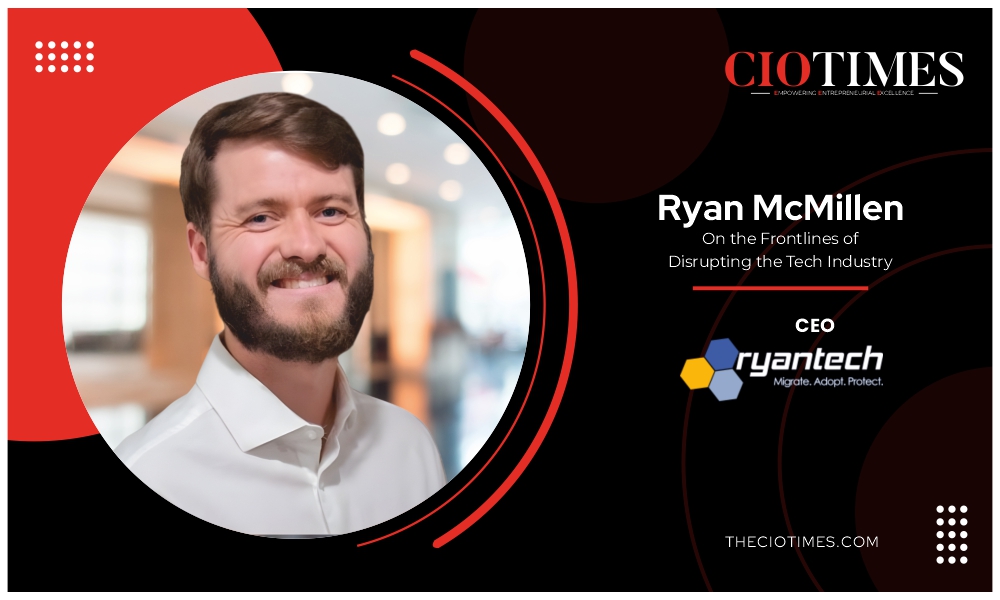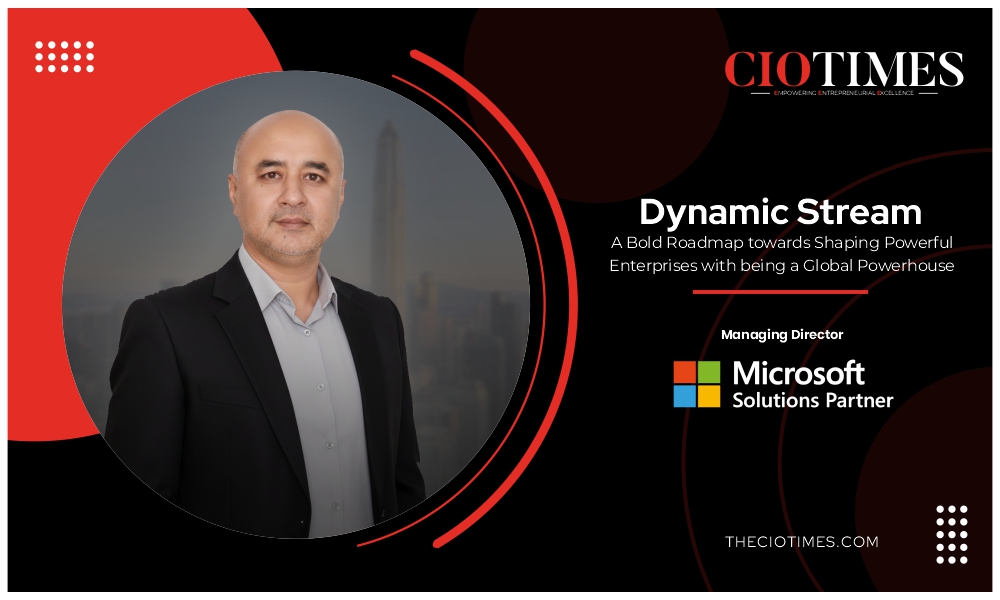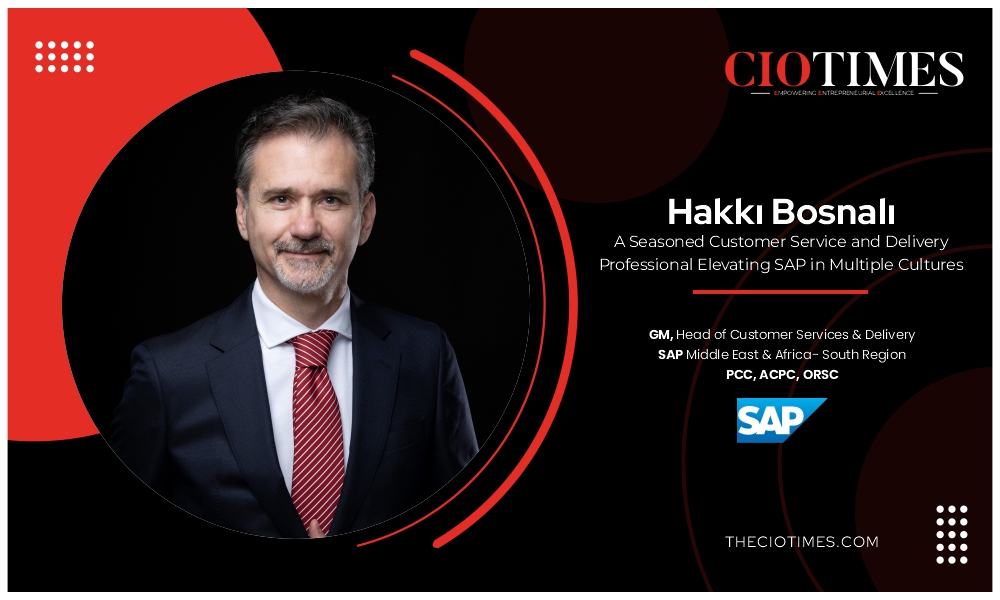While we do come across great managers at workplaces, how often do we come across great business leaders? How often do we come across someone who sees integrity as the backbone of corporate governance? Who believes it to be a cornerstone to all organizations, protecting the best interest of the company as well as all stakeholders and investors? A leader who believes in his cause and inspires his followers to believe in it. Someone who feels fascinated in rolling up his sleeves and mingling with the team to pursue the tasks, building up trust and relationships.
While such people are rare, fortunately, they do exist. Born to a family of entrepreneurs, Albert Yip is one such leader who has sailed through multiple major financial crises, all the while learning, embracing, and evolving. In a recent interview called “A Toast to Leadership with Albert Yip | What Makes the Future of ESG” by Dun & Bradstreet, Albert has been featured as a thought leader and influencer in finance, investments, start-up ecosystem, philanthropy, and ESG, inspiring the industry, and most importantly, for walking the ESG talk and pointing out Social as one of the key elements in sustainability and what we should be committed as part of the agenda in the boardroom.
Tracing the Journey
In the 1970s, Albert’s father established his corporate in Hong Kong with a core business in property development and alternative investments in luxury commodities. As a teenager, he saw his family fortune stars dwindle during the financial crisis in 1981.
His focus was on completing his education which he believed to be an asset with high intrinsic value that no other people can easily take away. He graduated with his Honor Degree in Accountancy and obtained his master’s degree in Information System. He decided to enrich his financial and commercial exposures from reputable multi-national firms, preparing himself for the next wave of financial turmoil.
He soon received several offers that helped him grow in his career. In 1997, when he was a Board Director and CFO of the regional headquarters of an international conglomerate, he was in charge to manage the Asian financial crisis. Of course, Albert knew that financial crisis should be a predictable, recurrent, and cyclical phenomenon. This time, he was well prepared and had restructured the company with financial engineering, turning this regional headquarter into a cash cow and strong asset-backed entity. This not only brought a turnaround in management but also enabled the whole group to survive the financial tsunami that badly hit entire Asia. This milestone was a big victory in his career.
Finding his Way
Later, to consolidate and protect the family’s assets more effectively with a corporate structure, Albert founded and incorporated Syndicate Capital Asia to guild the family office in British Virgin Island and Hong Kong in 2001 and 2002 respectively.
The general opinion is that Albert, as a major shareholder of Syndicate Capital Asia, has been leading and running this family office from the beginning. However, he always pulls himself out of his comfort zone and looks for new challenges. In 2004, after putting Syndicate Capital Asia on a smooth track and building up the ring-fence, he decided to step down from the board and look for his venture in the banking sector and capital markets.
Since then, he has been appointed to CEO, CFO, CAE, and other C-Suite positions across the Asia Pacific and the North America by Fortune 500 leaders in the banking and financial sectors. He is the former Senior Vice President and Asia Pacific Regional Head of Corporate Audit in State Street Corporation (the world’s 2nd largest custodian bank responsible for USD 43 trillion of global assets). He has also served other senior management roles in State Street Bank, Bank of Asia, Manulife Financial, and Westpac Bank.
In 2018, Albert stepped down from the prestige banker role and decided to invest in ESG (Environmental, Social, and Governance) and fintech sectors. Going against the popular opinion of the field is considered high risk but low return investment, he thought about it differently and decided to return to the board room of Syndicate Capital Group. In the first 18 months, he devoted himself to rebranding Syndicate Capital Group, formulating long and short terms strategic plans, investing significantly in a series of marketing campaigns, and developing international partnerships by expanding the market presence in the United Kingdom, Latin America, and Europe. The first year was a great success and very quickly, Syndicate Capital turned out to be a well-known investment international cooperation.
Standing Tough During Crises
COVID-19 badly hit the global economy in early 2020. Many people thought that Albert’s business and investment have been suffering from great loss as he returned to Syndicate Capital Group at a very bad time. It was not the case –whilst he put a strong focus on ESG and fintech investing, he also acquired a lot of good deals at extremely low prices that were extremely under-valued during the early stage of the breakout of COVID. Though the pandemic itself was a disaster at many levels, all of Albert’s investments appreciated rapidly as the ESG and fintech investments market received an abrupt thrust.
Nowadays, Syndicate Capital Group has a strong portfolio of flagship investments including greentech, carbon credits, proptech, artificial intelligent and blockchain technologies. All these came in at the best timing to address the massive global demand induced by the pandemic and climate change. Syndicate Capital Group also build up a strong partnership with digital banks and licensed financial institutions that perfectly bridged his banking and financial business in the old economy into the open eco-system of the new economy. Within a short period, Syndicate Capital Group also built up a digital fundraising and deal-matching platform with a combined AUM of USD 350 Billion. This time, Syndicate Capital Group has successfully turned the financial crisis from a damaging threat into a big opportunity –Disruptive technology became a driving engine that pushed Syndicate Capital Group to another level of big success and entered as a faster mover to the new economy. With his remarkable achievement, Albert has been appointed as the Senator for China at the World Business Angels Investment Forum.
A Leader’s Traits
We asked Albert, what according to him is a must-have trait for a leader and he replied with: Integrity, Inspirational, and Commitment.
He believes thatleaders who demonstrate integrity garner trust among their team and followers. “They are always magnets to attract talented and capable people with the same belief and values. Leaders with integrity always fight for truth, and they are ready to stand up and speak up for what they believe is right and fair,” says Albert. In his public appointment, he was the former Governor and Chairman of the Professional Development Committee of Institutional Internal Auditors, HK Chapter. Integrity is one of the core values of an internal auditor. It is also his belief that a leader with integrity will foster healthy corporate values and promote a code of conduct and ethics in his organization.
Our vibe attracts our tribe. A good leader always inspires and engages people to collaborate and pursue a common goal. They are always authentic, passionate, energetic, personal, and good at communication skills. Early this year, Albert was named by LinkedIn as one of the “10 CEOs in Hong Kong you should follow in 2022”. During the past three decades, he has been a key speaker on many international platforms. “Whenever I received a good response and found myself inspiring some audiences, I took it as the greatest reward that far exceeds personal brand building that I can earn from the stadium,” says Albert.
Recalling a particular incident, he says, “In 2014, I was once featured in the IntheBlack Magazine (a professional magazine run by CPA Australia) and talked about my personal belief and experience. 6 years later, on an unexpected morning I received a thank you letter from an Australian, who was a stranger that tried to locate me on social media. He told me that he found this old magazine from a corner in a bazar sale on the street. By chance, he read and shared my story with his son, who almost wanted to give up his public performance in the city hall of Victory in Australia. Thanks God this talented young man was inspired by my story in that old magazine. He gave a perfect musical performance in front of his family and all audiences, earning a standing ovation from the entire hall. Life influences life. To me, it is such a beautiful and incredible lifetime experience.”
On being committed, he feels that if a leader does not commit, how can he make his followers committed. A highly committed leader inspires and attracts followers. It shows them the leader has conviction and by setting himself as an example. People will believe in you only if you believe in your cause. Commitment is persistence with purpose and makes you a leader worth following.
As someone who loves sports and has represented Hong Kong in the international tournament of master fencing, Albert believes that sports have the power to unite us like nothing else. It not only strengthens our bodies but also awakens our minds. He continues, “Frankly, I see many ingredients that leadership skills can be found from sportsmanship. No matter you’re a professional athlete or not, good sports participation can highlight leadership qualities that are both effective on and off the field. Here are four leadership skills learned in athletics that have a direct workplace crossover: 1) Teamwork; 2) Communication; 3) Strategic Planning, and 4) Commitment.”
Fielding Tough Questions
We often feel that our leaders know everything and are always ready with a solution. But is that so? Albert shares that being a business leader, he always needs to be decisive and rational, particularly in some critical moments on behalf of his corporation. However, there are also times when he feels stuck or confused. In such moments, he always tells himself that no one can contain everything. He loves teamwork and always surrounds himself with talented and passionate people – he sees them as his think tank. “I will listen to them and refine my thinking process. Sometimes, I will invite a few young team-mates or old good friends to have lunch or drinks with me at the time when I need to take a break from frustration. They are always honest people that I would listen humbly from them – They always give me new input and good insight that enable me to think out from the box with better and more creative alternatives for decision making,” shares Albert.
But does he micromanage his team? No! Micromanaging never works, feels Albert. It only damages trust and culture in an organization. Albert developed a 3As Management Approach.
“We need to learn how to admit (admit our own limitation), accept (not only accept other people’s mistakes but also accept the fact that many people are actually better than ourselves), and appreciate (appreciate and recognize good things that done by the others,” shares Albert.
Teamwork and talent management are critical success factors for effective and efficient management. Businesses need to appreciate the fact that people are equipped with different talents and skillsets. Alike the 10 fingers of our hands, each of them is different but backs up each other to increase the overall performance to make an effective team. We should understand that a leader is different from a boss. “I know many corporate leaders are fond of recruiting “mini-me”, with a belief that they are easy to control and manage. However, it will only create a bad corporate culture with a bad-chain effect that each level of management recruiting their own mini-me, resulting in an overall decreasing of staff quality throughout the entire organization from top to bottom,” he says.
Words of Experience
Albert has the following to say to budding entrepreneurs:
Don’t panic when we are facing big problems in our entrepreneur journeys. Panic doesn’t help. All big and complicated problems are actually combinations of small ones. Alike a puzzle, we only need to resolve the small problems piece by piece with patience.
It is always a good thing for the younger generation to challenge the traditional. It is a cyclical refinement process, leading us to breakthroughs between each generation. Entrepreneurship is like “Trial and Error”. We are born to challenge tradition and to evolve with new creative ideas – there is nothing bad as this attitude has been inherited in our DNA as human beings. Every generation is repeating this same cycle to refine and create a better world through continuous improvement or evolution. No generation is an exception.




